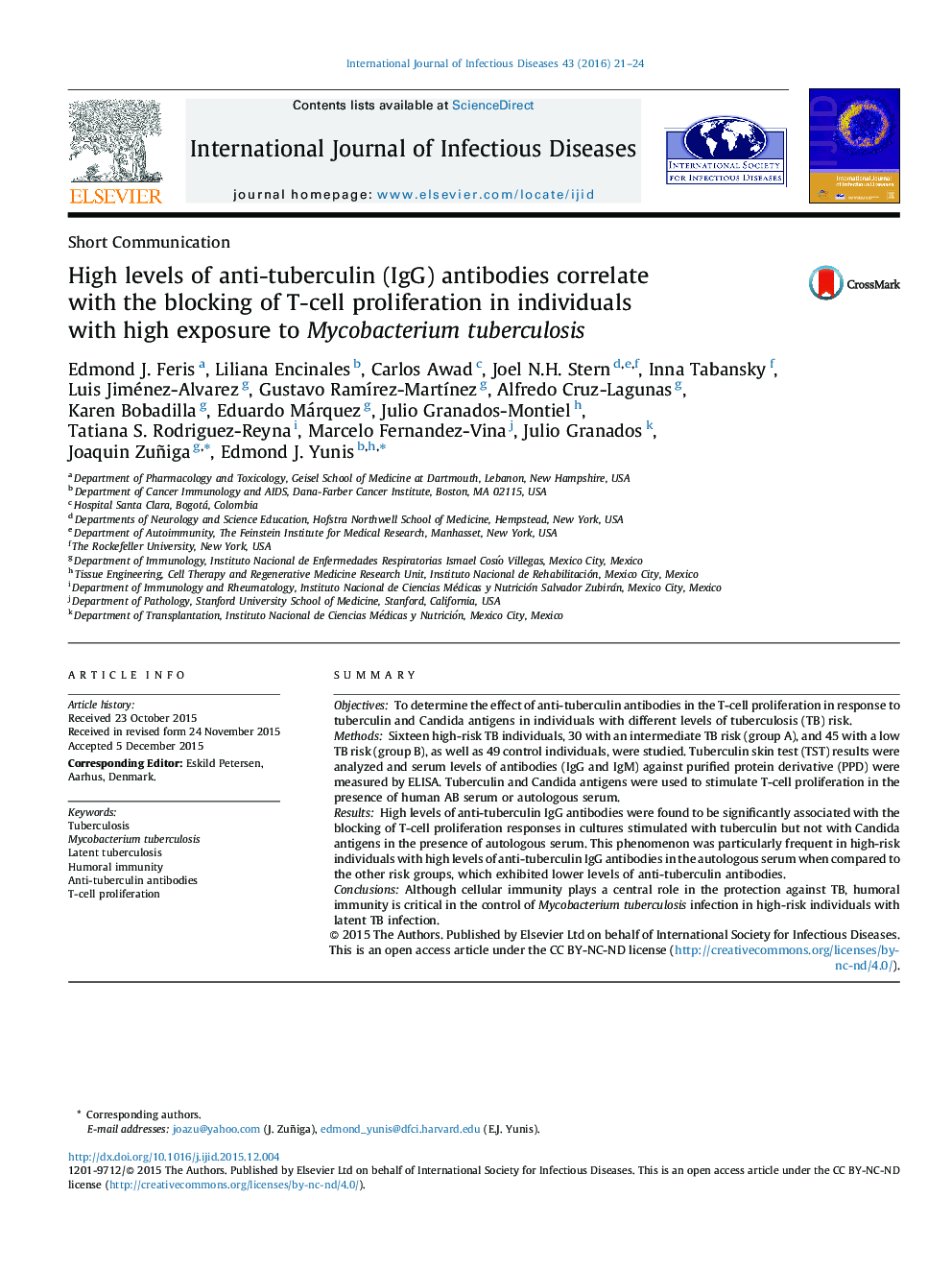| Article ID | Journal | Published Year | Pages | File Type |
|---|---|---|---|---|
| 3361920 | International Journal of Infectious Diseases | 2016 | 4 Pages |
•High anti-tuberculin antibody titers are correlated with protection against tuberculosis (TB).•T-cell proliferation against tuberculin is inhibited by anti-tuberculin IgG antibodies.•Humoral responses play a key role in the diagnosis and prevention of Mycobacterium tuberculosis infection.
SummaryObjectivesTo determine the effect of anti-tuberculin antibodies in the T-cell proliferation in response to tuberculin and Candida antigens in individuals with different levels of tuberculosis (TB) risk.MethodsSixteen high-risk TB individuals, 30 with an intermediate TB risk (group A), and 45 with a low TB risk (group B), as well as 49 control individuals, were studied. Tuberculin skin test (TST) results were analyzed and serum levels of antibodies (IgG and IgM) against purified protein derivative (PPD) were measured by ELISA. Tuberculin and Candida antigens were used to stimulate T-cell proliferation in the presence of human AB serum or autologous serum.ResultsHigh levels of anti-tuberculin IgG antibodies were found to be significantly associated with the blocking of T-cell proliferation responses in cultures stimulated with tuberculin but not with Candida antigens in the presence of autologous serum. This phenomenon was particularly frequent in high-risk individuals with high levels of anti-tuberculin IgG antibodies in the autologous serum when compared to the other risk groups, which exhibited lower levels of anti-tuberculin antibodies.ConclusionsAlthough cellular immunity plays a central role in the protection against TB, humoral immunity is critical in the control of Mycobacterium tuberculosis infection in high-risk individuals with latent TB infection.
